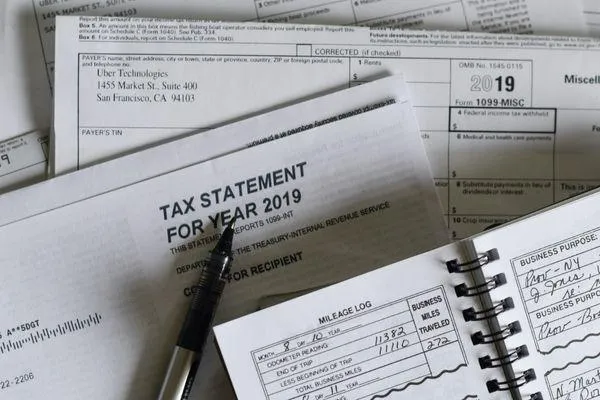Call Jake Today (534) 444-9957

What You Need To Know About Tax On Commercial Property Sales
Paying attention to the small details is what will make or break a commercial real estate transaction, and one element you can't overlook is knowing the tax law inside and out.
If you are looking to sell your commercial property. Or maybe you're trying to understand the tax process a bit better. This blog post will provide an overview of commercial real estate, how sales work, and what taxes are involved. We'll also give some advice on how best to minimize your tax liability when it comes time to sell.

What Are Capital Gains Taxes?
Capital gains tax is a tax imposed on the profit a person or company makes when they sell an asset. When it comes to commercial real estate, this tax is applied when the sale price of property exceeds its original cost. The tax rate depends on the length of time that you held onto the property before selling; if it was held for less than one year, then it is taxed as ordinary income tax. If the property was held for more than a year, then it’s taxed at a lower capital gains tax rate.
How Is Capital Gains Tax Calculated?
The tax is calculated by subtracting the original cost of the property (including closing costs and condo fees, if applicable) from the sale price. This gives you your total capital gains tax base. You then multiply this number by your tax rate to get the amount of tax due on the sale of commercial real estate. So if you bought your commercial real estate apartment building for $800,000 and you bought the property for $550,000. Then you would be taxed for the $250,000 difference because that is the capital gain asset.
Long-Term Vs. Short-Term Capital Gains
It is important to note that there are two different tax rates for capital gains on commercial property: long-term and short-term. The long-term capital gains tax rate applies when you have held the property for more than one year, while the short-term tax rate applies when you hold onto it for less. The tax rates differ significantly depending on which tax rate applies to you. So it is very important to use your own situation when tax planning.
What Is The Federal Capital Gains Tax Rate?
The tax rate imposed on your capital gains depends on a few factors, including whether the asset is held long-term or short-term. Generally speaking, if you are in the highest tax bracket, then your tax rate will be 20%. If you’re not in the highest tax bracket, but still in one of the upper tax brackets, then your tax rate will be 15%. It’s important to note that this tax can also vary depending on where you live and the local tax laws.
Determine the Gain or Loss On Your Commercial Real Estate
When you sell a commercial real estate property, you must determine the gain or loss on the sale. This is calculated by taking the selling price and subtracting your tax basis (original cost plus closing costs). If the difference is positive, then you have a gain; if it’s negative, then you have a loss.
How To Offset Loses On Your Tax Bill
If you have a loss on your tax bill, you may be able to use it to offset other gains. There are several ways you can do this, including using tax-free exchanges and installing cost segregation studies. You should speak with an experienced tax professional to determine the best way to lower your tax liability in these cases.

Other Fees & Taxes To Keep In Mind
In addition to capital gains tax, you may also have to pay other taxes and fees when selling commercial property. For example, if you use a realtor you will owe them a chunk of the sale and of course other closing costs.
#1 Realtor Fees:
When you work with a realtor, they will usually charge a commission. This is typically 6-7% of the final sale price. This can take a large number of the profits out of your pocket so really think about using a realtor when deciding to sell your commercial property.
#2 Transfer Taxes & Fees:
Depending on where you live, there may be transfer taxes or fees imposed when selling commercial property. These can add up quickly, so it’s important to know what to expect before agreeing to a sale.
#3 Depreciation Deductions:
Tax depreciation is a method by which businesses write off the decrease in value of an asset over time as an expense on their tax returns. This lets businesses offset the cost of investing in a certain type of asset. Depreciation occurs when an asset's usefulness decreases gradually over time (A great way to save money if your property has depreciated in value).
#4 Closing Costs:
Finally, you should be aware of the closing costs associated with a commercial real estate sale. These can include appraisal fees, title insurance, legal fees, and other miscellaneous costs. It’s important to factor these into your budget when thinking about selling commercial property.

Hire a Professional!
For tax purposes, it is always recommended to hire a trusted tax professional to help you with the sale of your commercial property.
Because the sale is of a significant amount worth hundreds of thousands or even millions, doing everything by the book is always the smartest way to get the most out of your money invested.
It is also important to be informed of tax laws that change from state to state so a CPA will help you navigate the complex tax system and ensure that you are compliant with all applicable taxes and regulations.
How To Save Money When Selling Commercial Real Estate
I can help you save thousands of dollars by purchasing your investment property in cash! My name is Jake Brackenwagen and I am the owner of IICF.
Letting me take your property off your hands for a fair all-cash deal is the best way to save money on closing costs, realtor fees, and my rock star CPA will make sure we both save as much money as possible to keep in our banks instead of giving it away to Uncle Sam for no reason.
Fill out the form on the "Get Your Cash Offer" page and I will be in contact with you shortly with an offer to buy your property.
(534) 444-9957
3026 Silvermine Drive Eau Claire, WI 54703
© 2022 - 2023 www.iicf.us - All Rights Reserved.

